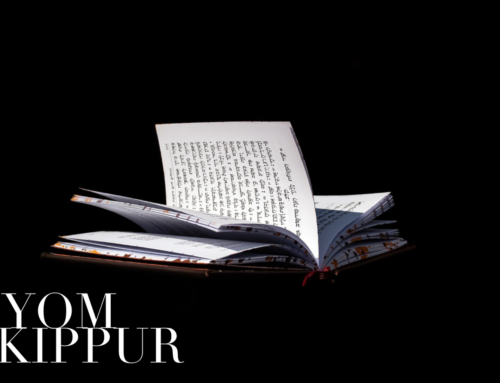When you find yourself amidst the soul-searching Jewish holidays, your personal narrative can offer contemplative passage. Bring awareness to your narrative. Does your self-talk, your story, lean toward self-criticism or towards an inflated sense of self-worth. Perhaps your narrative is somewhere in between and also offers room for both growth and self-compassion in the New Year.
Rabbi Alan Lew, Jewish meditation ‘guru’, views our identity, reflected in our narrative, as a construct we fear will crumble so we spend too much energy on propping it up. In the process, we live at some distance from ourselves. Estelle Frankel, Rabbinic Pastor and psychotherapist writes:
“The very formation of the ego and its defenses can be seen as a descent into a mitzrayim [narrow place, i.e. Egypt] of sorts for our spirit, which is essentially limitless. To some degree, the narrowing of consciousness that accompanies ego development is inevitable and necessary, for in order to function in the world we have to develop a healthy sense of our own autonomy and will. But that very sense of our separateness becomes a mitzrayim, which we must transcend in order to embrace the fullness of our true being.”
Mindful awareness can support the transcendence of our ego-heavy narrative. We develop and rehearse our story in an effort to make sense of our internal and external worlds. Occasionally this story, our narrative, does not “embrace the fullness of our true being.” When we bring awareness to the self-professed reasons for our life’s unfolding we can ask, “Is my narrative empowering?” From our narrative emerges our future choices.
“Awareness makes choice and change possible,” maintains neurobiologist Daniel J. Siegel, MD. “… applying the power of narrative in healing can liberate a life. Narrative is the overarching integration of our life’s past experiences with our ongoing awareness and the way we create our future life of possibilities.”
“Our future life of possibilities” is indeed our High Holiday wish for all: Gmar hatima tova, a good signing/sealing! Perhaps in the ten days between Rosh Hashanah and Yom Kippur, the Ten Days of Repentance עשרת ימי תשובה, we could have the intention, the kavannah, of witnessing our narrative.
Designate a routine task as a prompt to bring awareness to your thoughts. For example, before you start the car or as soon as you sit down on the bus, take a few deep breaths and do nothing else but listen to your own narrative. Pick a narrative strand. Hold onto it long enough to discern what it expresses. Then let it go and continue witnessing. If you discover that possibility is the overarching theme of your narrative, share that energy with the world! If your narrative is holding you back somehow, try-on a Jewish spiritual practice or two throughout the coming year. Read Jewish texts. Ask the Shechinah to help you recognize your possibilities. During the High Holidays, she is closer than ever.


Leave A Comment
You must be logged in to post a comment.